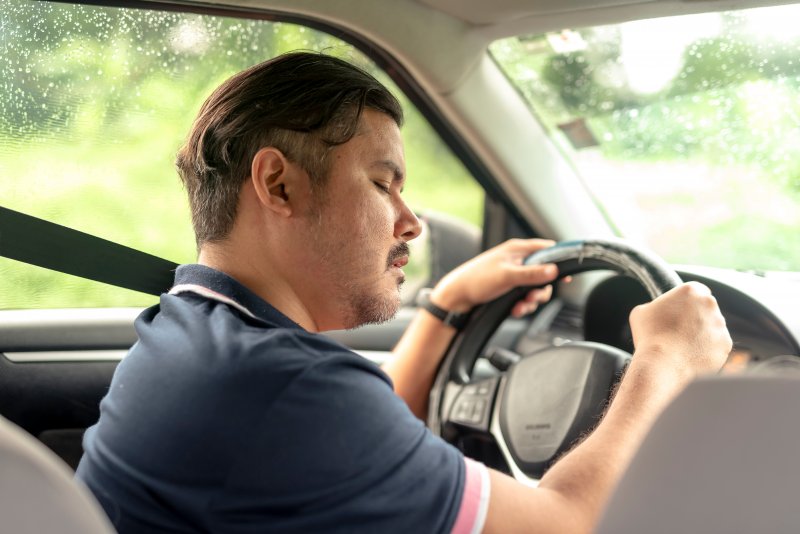
Drowsy driving is a known symptom of sleep apnea – a serious condition that affects millions of people and causes frequent interruptions throughout the night. Being unable to operate a car without feeling as if you’re going to fall asleep is a dangerous situation to be in, but what can you do to keep it from happening? Discover how a trusted expert can help alleviate your symptoms so that you can get back on the road safely.
Drowsy Driving Dangers: What Do the Stats Say?
According to the National Highway Traffic Safety Administration (NHTSA), there were reportedly 633 deaths that occurred in 2023 as a result of drowsy driving.
It is believed that most incidents occur between midnight and 6:00 a.m.; however, many also happen in the afternoon. These pivotal times appear to be when individuals suffer from a change in their circadian rhythm.
What makes drowsy driving so dangerous is that it can not only cause harm or death to the driver but also to others who might also be in the car or nearby. When sleep deprivation occurs, it mimics a similar type of mental impairment that someone would experience if they were driving drunk. Research indicates that a person experiencing 24 hours of sleep deprivation is similar to someone having a blood alcohol level of .10%.
Easy distraction and mental impairment reduce how quickly a person can react when driving, which can result in crashes and fatalities.
What Are the Symptoms of Sleep Apnea?
Drowsy driving is not the only symptom associated with sleep apnea, but also:
- Chronic fatigue
- Moodiness
- Inability to remember things (Forgetfulness)
- Gasping for air or choking when waking up
- Dry mouth
- Frequent headaches
- Mouth breathing
Additional health-related conditions can also occur, such as:
- Elevated blood pressure
- Stroke
- Heart attack
- Cognitive decline
How Can a Dentist Treat Sleep Apnea?
Seeing a sleep dentist near you can provide an opportunity to improve your symptoms and avoid dangerous driving habits.
Whether your dentist offers a lab-based or at-home test to determine whether you have sleep apnea, they often partner with local physicians who can provide a formal study, as well as deliver thorough analysis and diagnosis for treatment.
Continuous positive airway pressure (CPAP) therapy may be the most popular form of care when addressing sleep apnea; however, many dentists now use oral appliances that are more comfortable and easier to use. Instead of dealing with bulky machines and tubing, you can insert a custom oral device and wear it throughout the night. This encourages your jaw to move forward, preventing soft oral tissues from falling onto your throat and creating an obstruction in your airway.
By getting better sleep each night with the help of an oral appliance, you’ll wake up well rested and ready to face the day. This means you’ll likely be more comfortable and confident getting behind the wheel as you make your way to work or school.
About the Author
Dr. Khushboo Gandhi is a trusted dentist in Murphy who has more than a decade of experience working in dentistry and is here to help patients suffering from sleep apnea. With years of advanced training and clinical experience, Dr. Gandhi will customize a unique treatment plan for you so that you no longer experience the severity of your symptoms, one of which may be drowsy driving. By inquiring about an oral appliance, you can start getting the rest you need so that you practice safer driving habits when on the road. If you have questions about your sleep apnea symptoms, visit our website or call (972) 532-6506 to learn more.
